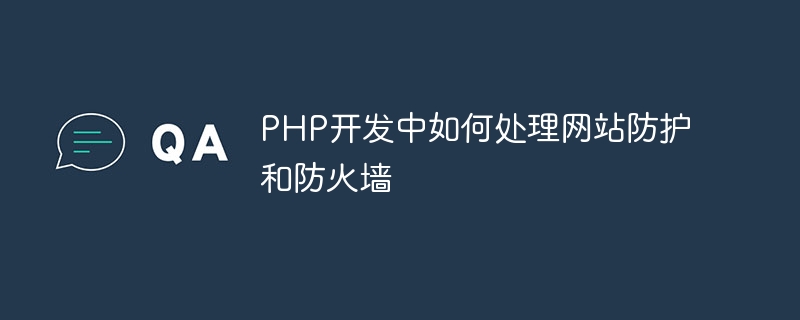
标题:PHP开发中的网站防护与防火墙实践
引言:
在当今互联网环境中,网站安全问题日益突出。作为一种常用的服务器端编程语言,PHP开发中的网站防护和防火墙措施显得格外重要。本文将介绍一些常用的PHP网站防护技术和防火墙实践,并提供具体的代码示例,供读者参考。
一、网站防护技术:
$username = filter_input(INPUT_POST, 'username', FILTER_SANITIZE_STRING);
$password = password_hash($password, PASSWORD_DEFAULT);
if (password_verify($inputPassword, $storedPassword)) {
// 验证通过
} else {
// 验证失败
}session_start();
ini_set("session.cookie_httponly", 1);二、防火墙实践:
$allowed_ips = array('127.0.0.1', '10.0.0.1');
$client_ip = $_SERVER['REMOTE_ADDR'];
if (!in_array($client_ip, $allowed_ips)) {
header('HTTP/1.0 403 Forbidden');
die('Access denied.');
}$key = 'ip_' . $_SERVER['REMOTE_ADDR'];
$current_time = time();
$expire_time = 60; // 限制为每分钟只能发起一次请求
$limit = 5; // 限制为每分钟最多发起5次请求
$cache = new Redis();
$cache->connect('127.0.0.1', 6379);
if (!$cache->exists($key)) {
$cache->set($key, 1, $expire_time);
} else {
$cache->incr($key);
}
$count = $cache->get($key);
if ($count > $limit) {
header('HTTP/1.0 429 Too Many Requests');
die('Request limit exceeded.');
}结论:
在PHP开发中,网站防护和防火墙是保障网站安全的重要措施。通过有效的输入过滤、密码安全、会话管理以及防火墙实践,可以大大减少网站遭受攻击的风险。在实际开发中,开发者应根据实际情况选择合适的防护策略,并进行适当的优化和加强。
以上是PHP开发中如何处理网站防护和防火墙的详细内容。更多信息请关注PHP中文网其他相关文章!




